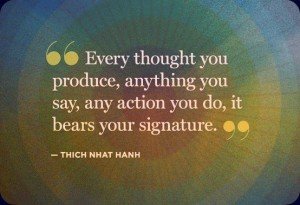The value of communicating effectively comes from knowing how we learn.
Knowing how we process information and learn directly translates to our personality and character.
Our verbal and non verbal communication reflects our learning styles.
4 Types of Learning Style: * Activist * Reflector * Theorist * Pragmatist
By becoming aware of your own dominant and secondary style it will help to appreciate how are brains are hard wired and why we respond the way we do. It may be a natural or learned response.
Next try to identify the learning styles of your colleagues, your partner, siblings, friends or children. This insight will give you an opportunity to change your approach to get a positive response from them.
I recall becoming frustrated and feeling like a child when I was not being understood and listened to. In hindsight I realise my style of communication did not match theirs and so it felt like they did not care to listen or understand my point of view. This impacted how I felt about myself at the time and I carried this experience as reality for a very long time. I did not know any better.
The learning process comes from our experiences and the opportunity to learn from how we all process information differently has helped me value our differences. Luckily the opportunity to tweak my style and align myself with other person happens in every conversation. This awareness helps me to improve and it could help you to be more effective in your communication approach to. It certainly helps me to feel better about myself and in the process show my respect of their style too by listening and understanding them better.
Activists like to be involved in new experiences. They are open minded and enthusiastic about new ideas but get bored with implementation. They enjoy doing things and tend to act first and consider the implications afterwards. They like working with others but tend to hog the limelight.
Activists learn best when:
- involved in new experiences, problems and opportunities
- working with others in business games, team tasks, role-playing
- being thrown in the deep end with a difficult task
- chairing meetings, leading discussions
Activists learn less when:
- listening to lectures or long explanations
- reading, writing or thinking on their own
- absorbing and understanding data
- following precise instruction to the letter
Reflectors like to stand back and look at a situation from different perspectives. They like to collect data and think about it carefully before coming to any conclusions. They enjoy observing others and will listen to their views before offering their own.
Reflectors learn best when:
- observing individuals or groups at work
- they have the opportunity to review what has happened and thing about what they have learned
- producing analyses and reports doing tasks without tight deadlines
Reflectors learn less when:
- acting as leader or role-playing in front of others
- doing things with no time to prepare
- being thrown in at the deep end
- being rushed or worried by deadlines
Theorists adapt and integrate observations into complex and logically sound theories. They think problems through in a step by step way. They tend to be perfectionists who like to fit things into a rational scheme. They tend to be detached and analytical rather than subjective or emotive in their thinking.
Theorists learn best when:
- they are put in complex situations where they have to use their skills & knowledge
- they are in structured situations with clear purpose
- they are offered interesting ideas or concepts even though they are not immediately relevant
- they have the chance to question and probe ideas behind things
Theorists learn less when:
- they have to participate in situations which emphasise emotion and feelings
- the activity is unstructured or briefing is poor
- they have to do things without knowing the principles or concepts involved
- they feel they’re out of tune with the other participants e.g. with people of very different learning styles
Pragmatists are keen to try things out. They want concepts that can be applied to their job. They tend to be impatient with lengthy discussions and are practical and down to earth.
Pragmatists learn best when:
- there is an obvious link between the topic and job
- they have the chance to try out techniques with feedback e.g. role-playing
- they are shown techniques with obvious advantages e.g. saving time
- they are shown a model they can copy e.g. a film or a respected boss
Pragmatists learn less when:
- there is no obvious or immediate benefit that they can recognise
- there is no practice or guidelines on how to do it
- there is no apparent pay back to the learning e.g. shorter meetings
- the event or learning is ‘all theory’
To work on learning your style and changing your approach to get the most out of people and relationships get in touch… sonia@one2oneprofessionals.com





